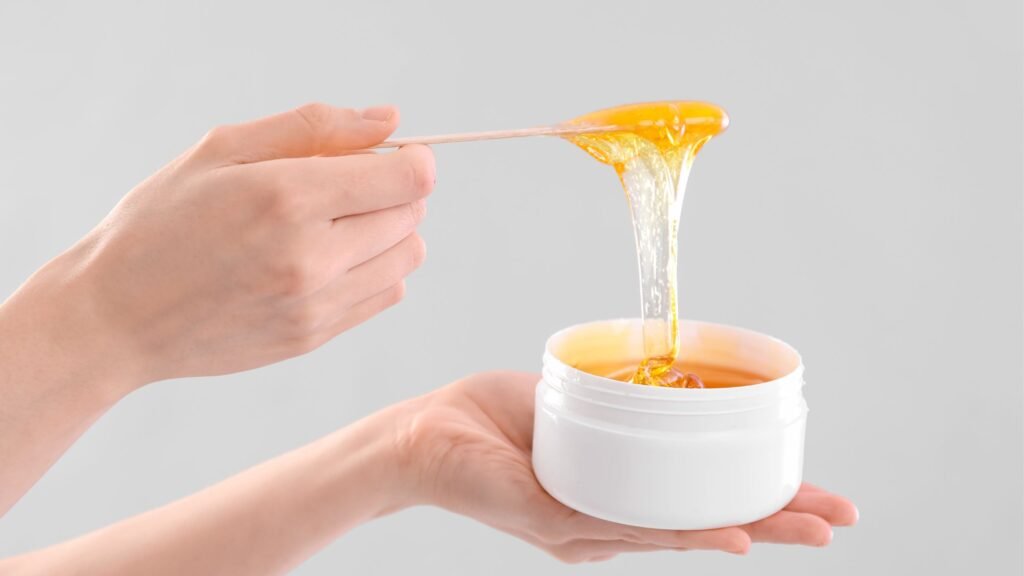Is Sugaring a Permanent Solution for Hair Removal?

Sugaring has become a go-to method for hair removal, offering a natural and effective solution for those seeking smooth skin. This technique uses a paste made from sugar, water, and lemon juice to remove hair from the root. But many wonder: Is sugaring permanent? To better understand this, let’s break down how sugaring works and its impact on hair growth.
Table of Contents
- Why Sugaring is Not Permanent
- Long-Term Effects of Sugaring
- Impact of Regular Treatments
- How to Slow Down Hair Growth After Sugaring
- Frequently Asked Questions
- Is sugaring a permanent hair removal solution?
- Can sugaring reduce hair growth over time?
- How long does it take for hair to grow back after sugaring?
- What can I do to slow down hair growth after sugaring?
- How does sugaring compare to laser hair removal for permanence?
Why Sugaring is Not Permanent
Is sugaring permanent? Sugaring, like other popular hair removal methods, is not a permanent solution. The process involves removing hair from the surface, but it does not affect the hair follicle itself. While the paste pulls hair from the root, it doesn’t damage the follicle, meaning it will continue to regenerate hair. So, while your skin may feel smooth for a period of time, hair will eventually grow back after several weeks.
Long-Term Effects of Sugaring
Though not permanent, sugaring can bring some long-term changes to hair growth. With regular use, hair may become finer and weaker. The root is repeatedly removed, which can cause the follicle to weaken over time. As a result, the hair may grow back slower and less densely, which can make it less noticeable. Even though regrowth may take longer, it’s important to note that the follicles are still active and hair will return.
Impact of Regular Treatments
Consistent sugaring treatments can help reduce the visibility of hair by making regrowth finer and slower. This can give the impression of less hair growth, but it doesn’t stop the production of new hair. The follicles continue to produce hair, even if it takes longer or appears softer. Ultimately, sugaring provides a temporary solution that makes regrowth less noticeable but doesn’t prevent it altogether.
Find your perfect sugaring paste among our product range:
How to Slow Down Hair Growth After Sugaring
While sugaring doesn’t stop hair from growing, there are ways to slow down the regrowth process. Start by moisturizing your skin regularly to keep it hydrated, as dry skin can encourage hair growth. Exfoliate with natural scrubs or loofahs to remove dead skin cells, which can help prevent hair from growing back too quickly. You can also try products with inhibitors or enzyme-based lotions to reduce the speed of regrowth. Avoid friction and tight clothing on the treated area to prevent irritation. Lastly, a healthy diet rich in vitamins like biotin and zinc can help maintain slower-growing, healthier hair.
So, is sugaring permanent? The answer is no. While it provides smooth skin for a longer period than shaving, it doesn’t prevent hair from regrowing. Over time, sugaring can result in finer and slower regrowth, but the hair will eventually return. For a more permanent solution, treatments like laser hair removal, which targets the hair follicle, might be more effective. However, if you’re looking for a natural and temporary hair removal method, sugaring remains a great option for reducing the visibility of hair and keeping your skin smoother for longer.
Frequently Asked Questions
Is sugaring a permanent hair removal solution?
No, sugaring is not a permanent hair removal method. While it removes hair from the root, it does not damage the follicle, meaning hair will eventually grow back after several weeks.
Can sugaring reduce hair growth over time?
Regular sugaring treatments can weaken the hair follicle, leading to finer and slower regrowth. However, it doesn’t stop new hair from being produced, so the results are temporary.
How long does it take for hair to grow back after sugaring?
Hair typically takes around 3-6 weeks to grow back after sugaring, depending on individual hair growth cycles and consistency of treatments.
What can I do to slow down hair growth after sugaring?
You can slow down regrowth by moisturizing your skin, exfoliating regularly, using enzyme-based lotions or inhibitors, avoiding friction on treated areas, and maintaining a healthy diet rich in vitamins like biotin and zinc.
How does sugaring compare to laser hair removal for permanence?
Sugaring is a natural and temporary method that weakens hair over time but doesn’t stop regrowth. Laser hair removal, on the other hand, targets the follicle directly and offers a more permanent solution.










